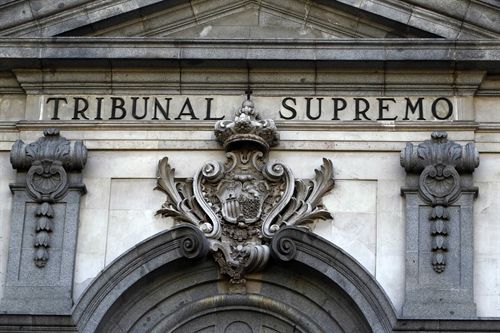
04 Jan THE SUPREME COURT DISMISSES AN APPEAL IN CASSATION BASED ON ART. 815 LEC
The Supreme Court has rejected the extraordinary appeals of procedural infringement and cassation filed by the appellant outside a declaratory proceeding, following the allegations made by our law firm Bufet Casanovas. Order nº 4382/2020 addresses the admissibility aspects of both appeals based on the interest of the appeal as well as the omission to cite a substantive rule.
The cassation appeal is filed under art. 477.2.3º LEC and is made up of two grounds, both referring to the violation of strictly procedural precepts, such as the linking of the grounds alleged in the response to the claim for payment order proceedings with those raised in the ordinary proceedings, as well as the standing ad causam (arts. 815, 818.2 and 10 LEC respectively).
The cassation appeal was rejected for failure to comply with the requirements of the written pleading (art. 483.2.2.2º LEC) due to the omission to cite a substantive rule and the raising of a procedural issue, as well as the lack of accreditation of the interest of the appeal (art. 483.2.3º LEC) given that in any of its modalities it cannot be based on procedural infringements.
The High Court recalls the extraordinary nature of the cassation appeal, which is exclusively aimed at controlling the correct interpretation and application by the Appeal Judgment of the applicable rule, principle of law or case law, and this translates into the requirement of clarity and precision in the identification of the infringement of the law (art. 477.1 LEC) and the individualisation of the legal problem raised (Art. 481.1 and 3 of the LEC), sufficient substantiation of the infringement of the legal system (Art. 481.1 LEC) and the inappropriateness of alleging procedural infringements.
Thus, the appeal in cassation is limited to a strict review function of the application of the substantive rules to the object of the proceedings, and must be understood as referring to the material claims deduced by the parties relating to civil or commercial credit and personal or family situations, with the extraordinary appeal for procedural infringement corresponding to control procedural issues understood in a broad sense, leaving the cassation appeal limited to a strict review function of the legal judgement consisting of determining the scope and legal meaning of the proven facts, i.e. the legal qualification of those facts and the subsumption in the factual situation provided for in the rule of the results of that factual judgement, as well as the application to the case being tried of the substantive rule itself.
The Supreme Court ended up concluding that there was no interest in appeal (art. 483.2.3º LEC) since this could never refer to procedural issues as the appeal raised, and this is because art. 477.3 LEC provides that in any of the cases it must be limited to substantive rules.
Finally, it should be pointed out that the High Court, in accordance with the provisions of Final Provision 16, section 1, paragraph 1, paragraph 1 and rule 5, establishes that the inadmissibility of the appeal in cassation determines the inadmissibility of the extraordinary appeal for procedural infringement, without it being necessary to assess it, as the viability of the appeal for procedural infringement is subordinated to the appeal in cassation of the Judgment handed down in the second instance.

